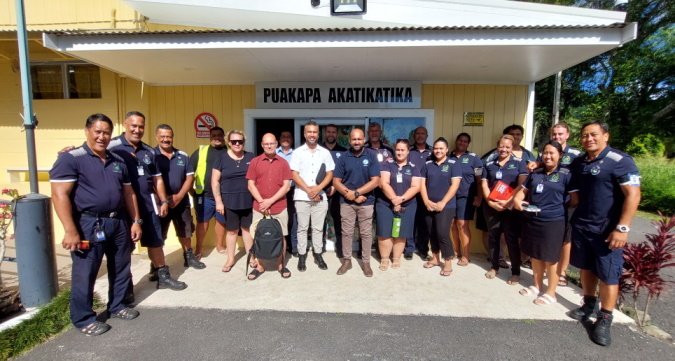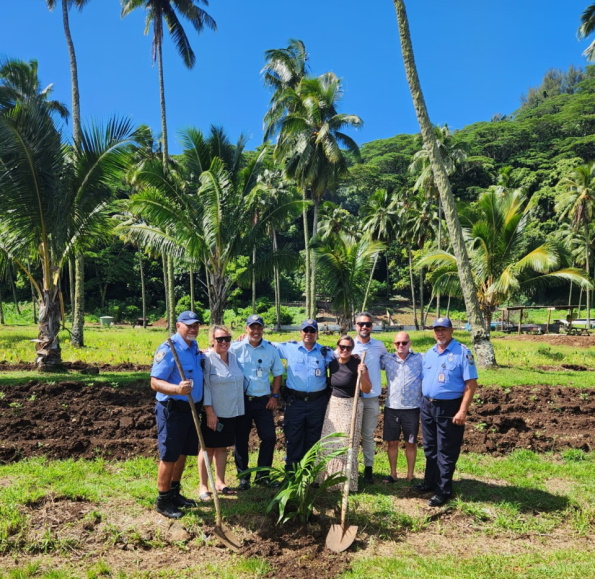 We have been working with the Cook Islands Ministry of Corrective Services since 2018, as part of our Pacific Programme. The aim of this mahi is for our Cook Islands neighbours to gain knowledge of our key operational areas, as they look to modernise their corrections system. As part of the work, staff visited the Cook Islands in February.
We have been working with the Cook Islands Ministry of Corrective Services since 2018, as part of our Pacific Programme. The aim of this mahi is for our Cook Islands neighbours to gain knowledge of our key operational areas, as they look to modernise their corrections system. As part of the work, staff visited the Cook Islands in February.
The Pacific Programme is funded by the Ministry of Foreign Affairs and Trade (MFAT) through their Aid Programme. The purpose of the Aid Programme is to develop shared prosperity and stability in the Pacific, by utilising the best of New Zealand’s knowledge and skills.
The visit in February was to review the current state of operations in probation and custody, and to prepare training for the next deployment in April. Whilst the team maintains contact in between visits, being on the ground is the most beneficial as it helps to strengthen connections, and allows visitors to understand the environment, which is difficult to do virtually.
“Arorangi Prison currently only has around 35 prisoners. However, it doesn’t mean they shouldn’t have good systems and processes to serve the people they are working with,” says Lead Service Manager Nga Gifford.
 Although Ara Poutama Aotearoa is better supported with resources and infrastructure, learnings have been beneficial for both parties. Manager Operational Performance Mark Nasmith first got involved with work in the Pacific in 2015, with his first trip to the Cook Islands in 2018. “A key difference between Corrections in New Zealand compared to the Pacific is the significant connection they have with the community,” says Mark. “The challenge we face with reintegration of people back into the community is not the same in the Pacific.”
Although Ara Poutama Aotearoa is better supported with resources and infrastructure, learnings have been beneficial for both parties. Manager Operational Performance Mark Nasmith first got involved with work in the Pacific in 2015, with his first trip to the Cook Islands in 2018. “A key difference between Corrections in New Zealand compared to the Pacific is the significant connection they have with the community,” says Mark. “The challenge we face with reintegration of people back into the community is not the same in the Pacific.”
Mark explained that villages in the Pacific with members in prison are involved with returning the person to their local village or community setting. Leaders in the villages often meet with probation staff to help organise a release plan. They are the eyes and ears to probation staff on how the person is going with their reintegration.
“Villages are keen to work with Corrections to inform how they keep themselves safe, and keep Corrections informed on what they need to know.”
“One of my biggest highlights was being able to support and be of service to my own people,” says Nga. “Another highlight was seeing just how open minded the Cook Islands team was, especially considering the dominance of culture and religion there. Having grown up in that culture, I know how hard it can be to change things, and so one of the biggest things for me was the openness of wanting to work with us.”
There is lots of exciting work to come in this space. “After the training deployment in April we will work with the Ministry of Corrective Services in planning a future programme of work,” says Pasifika Programme Manager Rob Pa’o. “This will focus on the potential for psychological support, a staff exchange programme, leadership development and ongoing training for probation and custodial staff.”

